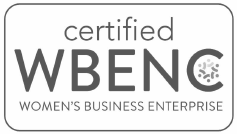As seen on Ragan.com
Search engine optimization is all about keywords. Read on to find out where they go in a news release, how many to use in a tweet, and more.
By Danielle M. Cyr
When most companies build websites, they hire a search engine optimization (SEO) expert to help them discover the best keywords for their company. It’s important to identify which keywords a company should try to rank for, but what do you do with them once your pay-per-click campaign is live and you’ve optimized your website?
1. Embed keywords in blog posts
Writing about timely and widely searched topics helps your search ranking, but incorporating keywords into blog posts offers even more value. To start, identify the broad categories your keywords fall under. Then, identify any vertical and niche industries your organization works with. When you use these two pieces of key information together, you will create blog posts that are both well-optimized and relevant to target audiences.
2. Optimize status updates and tweets
If you use Twitter as a business communication tool, I have good news: Search engines index public tweets. Facebook comments are also searchable. Identify ways to seamlessly incorporate keywords into Twitter updates and Facebook comments to enhance organic SEO. Be selective and use one keyword at a time. This will prevent your updates from becoming jargon heavy and convoluted.
3. Implement an optimized online news program
A third way to increase the value of keywords is to embed them in online news releases.
If businesses write news releases with hyperlinks to the company’s website and social media sites, they can improve organic search engine rankings while creating a steady stream of content for the website’s newsroom.
To get the most value, use just a few keywords in each release. Also, place the keywords in the beginning of the release for maximum search value.
When you develop online content, it’s important to include website keywords for consistent messaging and added search value. These organic SEO techniques are cost-effective complements to an existing SEO program, as well as a key tool for companies that do not have a paid search budget.
Danielle M. Cyr is director of social media and senior PR account manager for Co-Communications. Follow her on Twitter @DanielleCyr.

